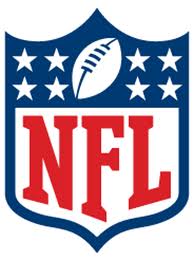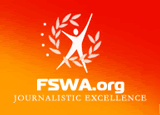Magazine Producers Need Labor Resolution by NFL Draft
Tuesday, March 8th, 2011 Anyone who hopes to watch NFL games in 2011 obviously first has to hope for a new labor deal. If your business includes producing fantasy football magazines, the timeline for such a deal becomes even more important.
Anyone who hopes to watch NFL games in 2011 obviously first has to hope for a new labor deal. If your business includes producing fantasy football magazines, the timeline for such a deal becomes even more important.
The developments — or relative lack thereof — over the past week of negotiations brings that issue into focus. The NFL and its players association extended last week the collective-bargaining deadline, pausing a potential chain of events that could have led to months in the courtroom.
According to SI.com’s Jim Trotter, negotiations nearly reached the breaking point before the extension. That would seem to enhance the importance of this week’s talks in avoiding a summer-long feud, which would crush the fantasy-magazine market for 2011.
Periodical producers have to be on pins and needles this week, right? Well, although all are certainly watching with interest, most have their eyes trained harder on NFL Draft weekend.
“This week on its own does not mean much if there was another week extension and then a deal,” RotoWorld managing editor Gregg Rosenthal told FSB.com. “It will be business as usual as long as there is NFL free agency before the NFL Draft.”
That notion was echoed by RotoWire president Peter Schoenke: “I think the NFL draft is probably a bigger deadline because it’s around the time we usually put together all the specifics for the magazine and we’ll need to see how much the editorial may suffer without off-season transactions.”
That’s the key issue in fantasy circles. The national media might be focused more on the negotiating stumbling blocks, the whereabouts of NFLPA counsel Jeffrey Kessler and the impact it all could have on the 2011 season.
We, however, need free agents to settle somewhere — even more so than usual. The no-CBA rules of 2010 changed the timeline for a league veteran reaching unrestricted free agency, and the result is a free-agent class of more than 500 players. It’s hard enough in a normal NFL calendar to project the outlook for hundreds of players and 32 team situations months ahead of time. Right now, content producers don’t even have the colors necessary to paint those pictures.
“Right now I’m researching cover subjects and the uncertainty of numerous potential free agents makes that a tougher task than in the past,” said Matt McKenzie, the lead editor for Sporting News’ Fantasy Football yearbook. “It also doesn’t help when it comes to our team reports, as there are some teams that have major holes across the board, which makes it hard to key in on their fantasy focuses.”
Of course, any delay that the labor issues shove into the off-season calendar will affect production schedules and could shrink the window for sales. The relative upside — very relative — is that this issue didn’t surprise NFL followers.
We’ve known for two years that winter 2011 would likely bring acrimony, and companies have had time to think about how to treat a potential lockout.
“We have been working under the assumption that a lockout is inevitable,” said Mitch Light, managing editor for Athlon Sports. “This negotiation extension gives us some hope, we still have to plan for all different scenarios.
Light said that his staff is in the process of setting a “drop-dead” date for production to start.
“If the lockout drags on for too long it just doesn’t make sense for us to publish a fantasy magazine,” he said. “Once we come up with that date, we will just sit back and wait.”
Others, however, plan to go to press whether the bickering has ended or not.
“Unfortunately, there’s not much to do but move forward the best we can,” McKenzie said for the SN magazine. “Some of the articles and capsules will have to be written a little looser than years before given the unknown free-agent situation, but I have no doubt we can still put out a quality magazine.”
Rosenthal shared a similar sentiment, relaying RotoWorld’s plan to publish even in an NFL standstill. He did point out, though, that a long struggle could lead to just a single edition being produced rather than the normal two-edition cycle.
Fantasy Index co-owner Bruce Taylor said his company has changed its contract structure for advertisers this year to suit the NFL situation. Normally a “cash-basis business,” Index is instead selling ad space in its fantasy football magazine on a “bill-me-later basis.”
“If the players and owners reach a settlement prior to the NFL draft, then we’ll execute the contracts,” Taylor said. “If an agreement is reached after the NFL draft but before May 15, then we’ll publish as usual, but likely with a smaller press run and a shorter on-sale period. We will reduce our advertising rates in direct proportion with the reduction in press run, and we’ll give advertisers the option to cancel their insertion orders.”
Smaller sales windows and downward adjustments in advertising rates are clearly scenarios that all hope not to encounter. The magazine business is tough enough these days, and fantasy content providers likely face an uphill battle to generate profits from these publications under normal conditions.
This will be a telling week for many throughout our industry, whether it ends with a labor deal or not. A new collective bargaining agreement by Friday would be the ideal, so that all could proceed with annual off-season plans. A further extension would mean more waiting and building anxiety, though it would also foster hope of a deal before the draft. Of course, a breakdown-lockout-lawsuit finish would be bad news.
For now, Fantasy Sports Publications founder Emil Kadlec says it’s not worth dissecting every step of the bargaining process.
“We’re obviously watching with great interest but whether a deal is done this week isn’t vital to our plans,” he told FSB.com. “We believe the deal will be done by the NFL draft which would fit well into our normal timeframe. Worst case, if needed, a one or two week on-sale date change is the most logical contingency. I think it’s best not to get caught up in the day-to-day drama of negotiations.”
 Arguably the biggest potential issue facing the fantasy industry right now is something that we all hope will never actually become a real issue.
Arguably the biggest potential issue facing the fantasy industry right now is something that we all hope will never actually become a real issue. FSWA members narrowly handed fantasy MVP honors this week to Houston running back Arian Foster, with Tampa fourth-round pick Mike Williams more comfortably winning the top rookie award.
FSWA members narrowly handed fantasy MVP honors this week to Houston running back Arian Foster, with Tampa fourth-round pick Mike Williams more comfortably winning the top rookie award.
